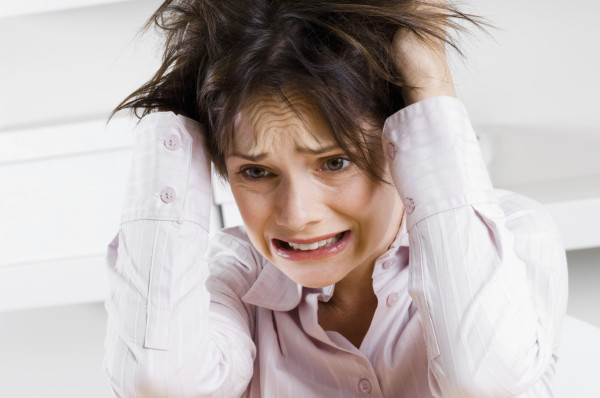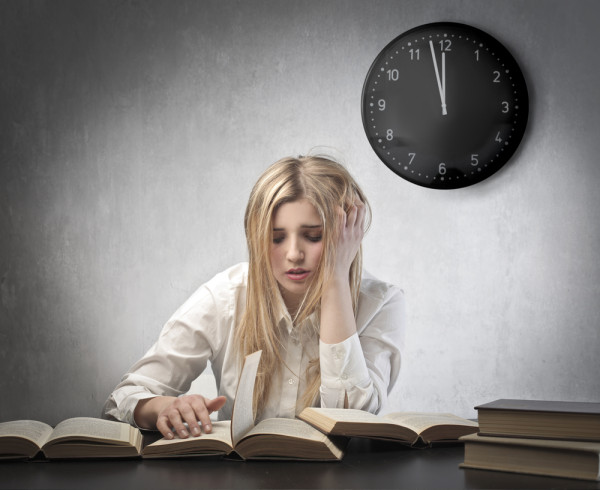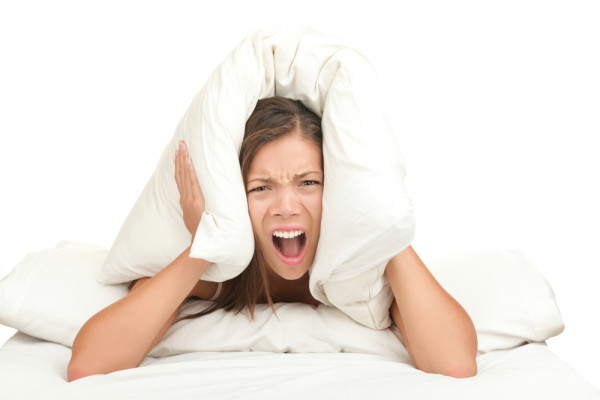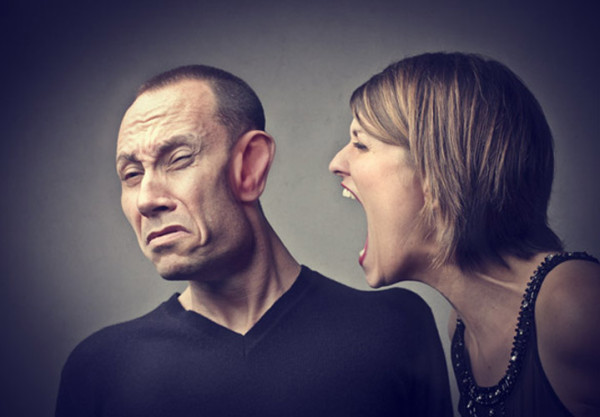Stress and how to deal with it
In the modern world, stress has ceased to be something unknown and rare. The hustle and bustle of everyday life, the constant striving for a better life, the desire to have in your arsenal only ultra-fashionable and popular technology, conflicts in the family and at work - all this and much more are the real sources of stress. It has entered our life so firmly and confidently that the overwhelming majority of the population does not even realize it, believing that everything is normal. Meanwhile, stress, if not dealt with in time, can cause numerous diseases at the physical level and lead to prolonged depression... Today we will take a closer look at this global and dangerous problem for humanity.
Content
Causes of stress
Stress is a condition in which there is an increased tension of the whole organism, arising from various unpleasant factors in the environment: hunger, mental and physical trauma, cold, etc. Under stress, the body ceases to function normally, failures occur in the general system, which leads to various, often unpleasant consequences.
There are a great many reasons for stress, and at the same time, what will cause the strongest shock in one person will not cause a response in the soul of another. The things that lead to the onset of stress are called stress factors by experts. Moreover, they can include not only negative aspects of life, but also positive ones. For example, for women, the upcoming wedding... The bride is worried and worried about the event that something might go wrong, she is afraid that she might disappoint the guests and cannot choose a dress. Since the preparation for a significant event occurs in advance, several months in advance, the girl is in constant stress. Although in reality nothing bad is expected, on the contrary, a triumph is coming.
The causes of stress can be external and internal. The first are life troubles and problems that are under the control of a person. The second - originate in the mind of the individual, often are nothing more than a figment of the imagination. However, such a division is only conditional, and the nature of their origin is interrelated.
External stressors include:
- work;
- material problems;
- increased employment;
- personal life;
- significant, abrupt and unforeseen changes in a person's usual life;
- difficulties in interpersonal communication.
Internal stressors include:
- pessimistic outlook on life;
- negative attitude and internal dialogue with oneself;
- lack of persistence and diligence;
- perfectionist syndrome ("excellent student");
- internal uncertainty.
Let's touch on the main stressors.
Finance. One of the most popular causes of stress is the financial side of life and everything related to it. This is not necessarily about money, but about what you can buy with it. For example, the inability to afford to satisfy their material needs: buying a car, an apartment, a trip to vacation... This also includes problems with loans, debts, etc.
Work. An unfair tyrant boss, squabbles with colleagues, low wages, fines and loss of bonuses, constant employment are all direct sources of stress.
Health. Problems arising in terms of health also cannot make a person calm down, which causes even more harm to the current state.
A family. Probably, there are no families where everyone lives in perfect harmony. Occasionally happen disagreements that lead to quarrels and squabbles, just more often for someone, less often for someone. The higher the regularity of events, the stronger and longer the stress.
Everyday life. Troubles in communicating with your soulmate, friends and just passers-by can be expressed in strong tension, which provokes stress.
Problems in personal life. What kind of person would not like to have complete control over their life? But this is not possible. There are always factors that arise unexpectedly and spoil, or significantly change the whole way of life.
Death. Undeniable stress for everyone. It doesn't matter who exactly this fate overtook: a loved one, a relative or a beloved animal - every loss is taken to heart.
Lack of self-expression. In every person there is a talent that breaks out. Not everyone has the opportunity to express this "volcano". There is a suppression that every year more and more, and not for the better, affects the psyche.
Impact of stress
Stress is dangerous because its influence spreads to all spheres of a person's life at once. And on health, and on the outside.
A stressful state loses a person's ability to concentrate, memory weakens, attention is lost. In strong manifestations, stress can result in a loss of interest in life. Desires, which recently so attracted, now do not evoke the former excitement in a person. The inner fuss that often accompanies stress provokes the individual to commit hasty and rash acts. This leads to problems that exacerbate an already dire situation.
In addition to the external manifestation, stress contributes to changes in the body, health problems appear, mainly of a psychosomatic nature. First to start insomnia... Due to this, a person cannot sleep well. In combination with general overvoltage, this affects the cardiovascular system. A migraine that does not go away occurs, apathy and indifference to oneself sets in, a person becomes aggressive and irritated. In men, this condition can result in problems in the genital area, up to impotence.
Feeling doomed, the patient may begin to abuse alcohol, smoking and addiction to drugs. Then it will be almost impossible to bring a person out of such a state, the intervention of a specialist will be required.
Types of stress
Stress is not always harmful, sometimes it is very beneficial for the body, like a shake-up. This type is called "Eustress". It is provoked by positive emotions and mobilizes a person. Suddenly positive news can instantly cheer you up and make your heart beat faster. Its effect on the body is so great that there are cases when elderly people simply died from this, the heart stopped from an overabundance of positive emotions. Such stress provokes a person to achieve the assigned tasks, it stimulates interest and excitement.
But, unfortunately, mostly bad stress such as "distress" is found. It has a destructive effect on the entire body. In turn, it is divided into:
- nervous;
- chronic;
- short;
- psychological;
- physical.
Let's consider each type a little.
- Physiological distress. It occurs under the influence of various external factors: cold, exhausting heat, strict diet, thirst. With the prolonged action of the above factors on the human body, stress arises in the latter.
- Emotional or psychological distress. It is triggered by situations in which a person experiences strong emotions, which can be both overtly and seemingly negative (as in the example with a wedding).
- Short term distress. It is caused by a natural reaction, an instinct for self-preservation. For example, a mad dog ran after a man, from which he somehow managed to escape. He underwent short-term but intense stress. As a rule, this type is not dangerous, unless the situation subsequently develops into a phobia.
- Chronic distress. The most dangerous variety, since over time a person simply does not understand that his condition is far from normal and does not take measures to eliminate it. In the meantime, the body wastes away. It is often caused by a lingering "black" streak in life.
- Nervous distress. It is called after the strongest stressful situations. This painful condition can lead to suicide, nervous breakdown and depression.
The development of any stress occurs in three stages:
- Anxiety. A typical state of anxiety and tension arises as a reaction to an unpleasant situation.
- Resistance. The person himself, like his body, begins to resist the state and situation.
- Output. If there is enough psychological strength to cope with the onset of the state, then the person wins, if not, a prolonged depression sets in.
Stress and depression
Stress and depression are two very close "comrades" in assessing the general condition of a person. But there are many "buts".
Having understood the types of stress, it is clear that it can "look" and manifest itself in different ways, and not always from the negative side. Depression is an unambiguously negative state in which a person loses interest in life and cannot think clearly.
However, doctors are inclined to believe that stress can act as a "push" for depression. On the other hand, under stress, an individual's increased excitability is often observed, while depression is expressed by a tendency to lethargy. In general, it is difficult to distinguish between prolonged, that is, chronic stress from depression and only a specialist can do this.
In any case, both conditions require urgent treatment in order not to develop into physical health problems.
Stressful situations: how to resist them
Years of experience with stress has helped psychologists identify some of the ingredients that can help you endure problems.
- Use self-hypnosis. It's not about being completely immersed in a trance, but about concentrating on your thoughts. Find what truly inspires you, what makes the wings grow behind your back. Spend at least 15 minutes a day in a pleasant meditation process, and possibly more. At this time, no one should disturb you, you should be alone with your thoughts. It will give strength and cheer up.
- Do not be angry. Very often, stress provocateurs are people with whom there is contact during the day. An unpleasant situation breeds resentment, anger, or anger that ignites an inner fire. Of course, it is difficult to deal with such a state and it may not work out right away, but it must be done. Try to sincerely forgive the person for their actions / behavior / words. Evaluate the situation from a third person, think about what could have pushed the "irritant" to his actions. The resulting awareness will help you understand and forgive him.
- If your work or just life is associated with frequent stress, develop a habit of playing sports. It is useful on its own, since at the time of training, the body releases happiness hormones. And the power load perfectly saves you from stress, especially if at the moment of hitting the "pear", for example, you imagine a situation that caused unpleasant sensations.
- Review your diet. Stress can be triggered by commonplace lack of vitamins and trace elements. Take a course of multivitamins. This is especially true during the off-season.
- Organize yourself a hobby. Hobbies help to forget and enjoy the process itself.
- Get regular rest. Its deficiency is stressful even when outwardly everything is going well. As they say, you cannot earn all the money, you cannot redo all the cases - be guided by this. Moreover, after a quality rest, productivity increases significantly.
Constant stress: how to cope
You will not be able to cope with stress 100%, only a robot is capable of this, which you cannot become. They will, but the methods described above will help to minimize their consequences. It is not possible to change the environment and most of the situations, however, on your part, you can change your attitude to what is happening.
There are no good or bad situations by nature, i.e. a negative or positive color is given to a particular incident by the person himself. This can be easily seen with an example. Let's say there is a modern, ultra-fashionable and sophisticated sewing machine - an ordinary object, in itself neutral. If you give it to a person who is madly fond of sewing, then he will be incredibly happy and immensely grateful. And if you present the same thing to a nuclear physicist, he will not react to it in any way. There is one thing, but there are two reactions.
The reaction to situations works on the same principle - try to reconsider your reaction and it will become much easier.
Stress at work: what to do
Few people work for pleasure. And all because he is afraid to do what he really likes. If work is hateful, and, as a rule, nerves and stress appear only with this type of activity, then help here can only be in changing jobs. But not on the alternative, but on the one that evokes positive emotions, the one that you would be happy to do at no cost. Otherwise, read on how to deal with stress and teach courses. Remember, until the source is eradicated, the problem cannot be solved.
Chronic stress
Chronic stress is a mild consequence of untreated ordinary stress.
It is no longer possible to deal with it on your own - the intervention of a specialist, as well as medications, is required, since traditional medicine is unlikely to act as an assistant here.
Chronic stress is very dangerous for both psycho-emotional state and physical health. If you do not catch yourself in time, then the disease will begin to progress, and it will be more difficult to cure it. Therefore, do not postpone treatment indefinitely and see a doctor as soon as possible!
How to relieve stress
Stress relief can be done through a ritual or through drugs. The latter act much faster, but only a doctor should ascribe them. To relieve relatively light stress, such simple and familiar things as walking in the fresh air, going out into nature to be alone with yourself, taking a hot bath with the addition of aromatic oils, etc. are suitable.
In general, aromatherapy is very popular in the area of relaxation. Orange, lemon, lavender, ylang-ylang, rose, tea tree, violet, jasmine, geranium - all these esters help to restore strength, improve sleep and calm down. Buy special pendant, put a couple of drops of oil there and always carry it with you. If you feel that another wave is rolling, smell it for a few minutes, and you will notice a miraculous effect.
Stress treatment
Mild stress caused by overwork can be managed with quality rest. Go on vacation, bask in the sun without thinking about anything.
Severe and prolonged stress, especially one that borders on depression, should be treated exclusively under the supervision of an experienced specialist - a psychotherapist. Do not belittle the danger of such a state - it can turn into disastrous consequences!
Stress pills
For the treatment of stress, and especially chronic stress, the strongest psychotropic drugs are used, which are produced exclusively by prescription. In no case should one engage in self-designation in such a state. If you want to self-medicate, it is better to start taking traditional medicines, which are much milder, albeit longer.
Medicines that can be prescribed by specialists are divided into groups:
- Antipsychotics. These medicines forcibly inhibit the work of the nervous system and take patronage over it. In addition to affecting the "unhealthy" areas of the brain, elements of such drugs affect healthy ones, which can lead to very serious consequences. It can reach the point that from normal, a person will turn into an insensitive and thoughtless creature.
- Antidepressants. The most popular group of pills prescribed by doctors to help relieve anxiety. They help to raise the mood, improve the general condition of the patient and prevent the risk of suicide.
- Tranquilizers. Powerfully oppress the emotions of a person, due to which the patient becomes very calm. His reaction is inhibited and there is complete indifference to everything that happens in the world. Drowsiness arises, anxiety goes away, and efficiency decreases sharply. The mood becomes neutral.
- Nootropics. Translated from Greek, "noos" means mind, and "tropos" is striving. Medicines included in this group, at the time of administration, begin to affect the memory area, on the areas that are responsible for thinking and mental activity. Unlike the usual psychostimulants, this category does not have such strong side effects as addiction, increased excitability of speech, etc.
- Normotimic drugs. Helps stabilize mood. They are used as a gentle therapy, with the use of small doses.
- Sedatives. Anxiety is significantly reduced, stress is suppressed, sleep is normalized. Unlike the groups listed above, sedatives are not addictive.
Each drug, in turn, is divided into two more groups: herbal or synthetic tablets. The former have a mild effect on the nervous system, but the effect usually comes after a while. The second - "treat" immediately, but in most cases they are addictive, can be expressed in strong side effects and do not have the best effect on health.
The most popular "pills" for stress are: Afobazol, Quattrex and Tenoten. These are the few drugs that can be dispensed without a prescription.
Tenoten is good for powerful stress, neurotic and psychosomatic diseases. The dosage must be determined by a specialist. Available in the form of absorbable tablets.
Quattrex. The drug is a broad spectrum of action. Popular among women during menopause, children who suffer from nervous tics, stuttering, enuresis. In addition to stress, Quattrex helps fight insomnia and anxiety.
Afobazole belongs to the category of tranquilizers and is taken in case of anxiety, against the background of which a stressful state arises. Helps combat unfounded fears and panic.
Preparations by group:
Antipsychotics: Aminazine, Flupentixol, Levomepromazine.
Nootropics: Quattrex, Tenoten.
Antidepressants: Lerivon, Escitalopram.
Tranquilizers: Alprazolam, Phenazepam, Lorazepam, Afobazol.
Folk sedatives
The pills should be prescribed by a doctor, but, unfortunately, not everyone has the opportunity to go to an appointment with a specialist. In order not to spoil your own health, you can resort to more gentle drugs from traditional medicine. Mother Nature did not disregard the psychological aspect of humanity and prepared a lot of herbs and products for this. Consider recipes that you can use at home.
- A wonderful natural soothing can be mint tea with valerian roots, oregano stems, rose hips and hawthorn flowers. Take the mentioned products in equal proportions and pour one and a half liters of boiling water. Cover and let it brew. After that, strain the infusion and take about twenty minutes before meals.
- It has a beneficial effect on the nervous system of tansy, oregano and calendula seagulls. Take each plant in equal proportions and pour a glass of boiling water over it. Strain the cooled composition and take a drink 0.5 cups three times a day.
- Common hawthorn can be used as a simple but effective remedy. Brew a tablespoon of the product with a glass of boiling water and cover with a lid. After two to three hours, strain the composition and take a couple of small spoons three times a day. In addition to the nervous system, such a drink helps well to cope with pressure problems, shortness of breath and dizziness.
- Herbal baths have a positive effect on stress. Suitable for these purposes: rosemary, linden, wormwood. Brew a kilogram of herbs, collected in equal proportions, with four liters of boiling water and put on the stove. As soon as the composition boils, wait five minutes, then let the broth brew for fifteen minutes. The finished broth must be poured into a prepared bath to already filled water. Take such baths for 20 minutes, for ten days. Then take a short break and you can repeat the session.
- Plain beet juice with a spoonful of honey is also a wonderful sedative. Divide the reception into three times: in the morning, at lunchtime and in the evening. Treatment time: 10 days.
- You can take a course of treatment with valerian infusion. It is prepared as follows: put a tablespoon of dry grass in a thermos and pour a glass of boiling water. Let the composition stand overnight, then start taking the infusion three times a day. The duration of the course should not exceed two months.
- Combine herbs in equal proportions: chamomile, valerian, cumin, fennel. Pour boiling water in the proportion: 15 g of herbs - a glass of water. Let it brew for 20 minutes and strain the drink through a sieve. Take 0.5 cups twice a day, in the morning and evening.
- Brew a tablespoon of hop cones with a glass of boiling water. Leave to infuse for half an hour. Strain the finished infusion and take a tablespoon after meals, three times. Hops have not only soothing but also analgesic properties. It is a good helper for problems with blood pressure, for pain in the intestines, liver and biliary diseases.
It is worth mentioning the importance of preventing an allergic reaction. Start with a small amount of the drug. If the body reacts well - you can continue to drink in the indicated amount, in case of problems - give up and try another recipe.










